Initiative leader Daryl Dela Cruz has taken note that misleading information from a particular letter-writer from Aldergrove has shown up in the news again, this time in two local Langley newspapers. He has submitted this letter, which is a revision of the letter that he first sent to The Province [LINK HERE], in response to Mr. Atkinson’s second anti-SkyTrain letter to appear in the news:
Editor: A letter writer is misleading people; his supporting claims behind his ideal that “SkyTrain is a loser” are crooked.
The $30 million needed by TransLink as part of their Moving Forward 2012 Supplemental Plan is funding that is being allocated to expanding transit services. This is not an existing-service operating cost deficit.
It is because of SkyTrain that TransLink profits are better than ever. Upon the introduction of the driver-less Canada Line, system-wide operating cost recovery rose from 54% to 60%. This increase brought forward as a result of increased overall ridership and lowered operating costs due to driver-less operation solved a $150 million operating deficit in 2009 that threatened TransLink’s ability to maintain service levels as they were at the time.
If anything it is a move to surface, driver-manned rail transit that will corrupt this system with its high operations and maintenance costs and low level of service/competitiveness, turning away potential riders. Because all rail transit is expensive, such services must be as competitive with the automobile as possible to make the service justifiable and sustainable to operate.
Look at what is happening in Portland, Oregon, which is served by the MAX light rail. As a surface light rail, the MAX is bound by technicalities that prevent it from being competitive: it runs at an average speed of just 30km/h (SkyTrain runs at 45km/h) and at low frequencies of every 10 minutes during peak hours (trains on SkyTrain operate more than 5x as frequently).
Only 27% of expenses are paid for by fares in Portland, less than half of the rate observed by TransLink. As a result of the low ridership and revenue that is a direct result of uncompetitive transit service, the agency in charge of transit in Portland is making plans to increase fares next year; these fares are necessary to maintain existing service levels and without them, service would need to be cut. TransLink isn’t doing that; planned fare and tax increases will go hand-in-hand with increased transit service.
Daryl Dela Cruz
Chair of Initiative: https://skytrainforsurrey.org/
Mr. Atkinson’s letter as published in the Langley Times newspaper [LINK HERE] (also published on the Langley Advance [CLICK HERE])
It’s time TransLink admitted that SkyTrain is a loser
—————
Editor: Isn’t it about time TransLink admitted it has backed the wrong horse?
Back in 1986, when the first section of track was opened on Terminal (how fitting) Avenue for Expo 86, then-BCTransit was told by the experts of the day that the SkyTrain system would never pay for itself. Twenty-six years later, TransLink is still trying to break even.
The quandary TransLink find itself in is obvious: if it raises fares to the amount necessary to recoup operating and capital costs through “user-pay,” the ridership will drop off dramatically and it may in fact collect even less revenue. This means the business and financial model used to justify adoption of the SkyTrain system was faulty out of the gate.
Someone did a snow job on the people of Metro Vancouver. TransLink realizes this, and that is why it is trying every trick in the book and then some to suck money out of the Lower Mainland residents to try (and I mean try) to make SkyTrain pay. The truth is it will never pay for itself.
TransLink has admitted as much in its statement that just to keep the system operating, never mind the Evergreen Line costs, it needs to raise another $30 million.
It’s time to do what other cities in the world have done: abandon SkyTrain and move to surface transportation. The Fraser Valley has a viable rail system for commuter traffic, not only to Vancouver but to other communities in the Valley and all the way to the coast.
Super buses can be a part of the new transportation system. The system needs to electrify as much as possible and move away from gas and diesel engines. Decentralizing transfer points (there would be no need to feed SkyTrain anymore) so it spreads the traffic rather than concentrating it will all lead to increased ridership and decreased pollution.
Then TransLink can stop squeezing blood out of the stones that are already crumbling under the strain of added levies and taxes.
It’s time for someone at TransLink to have the stones to stand up and admit SkyTrain is a loser.
Colin Atkinson, Aldergrove
© Copyright (c) The Langley Times

